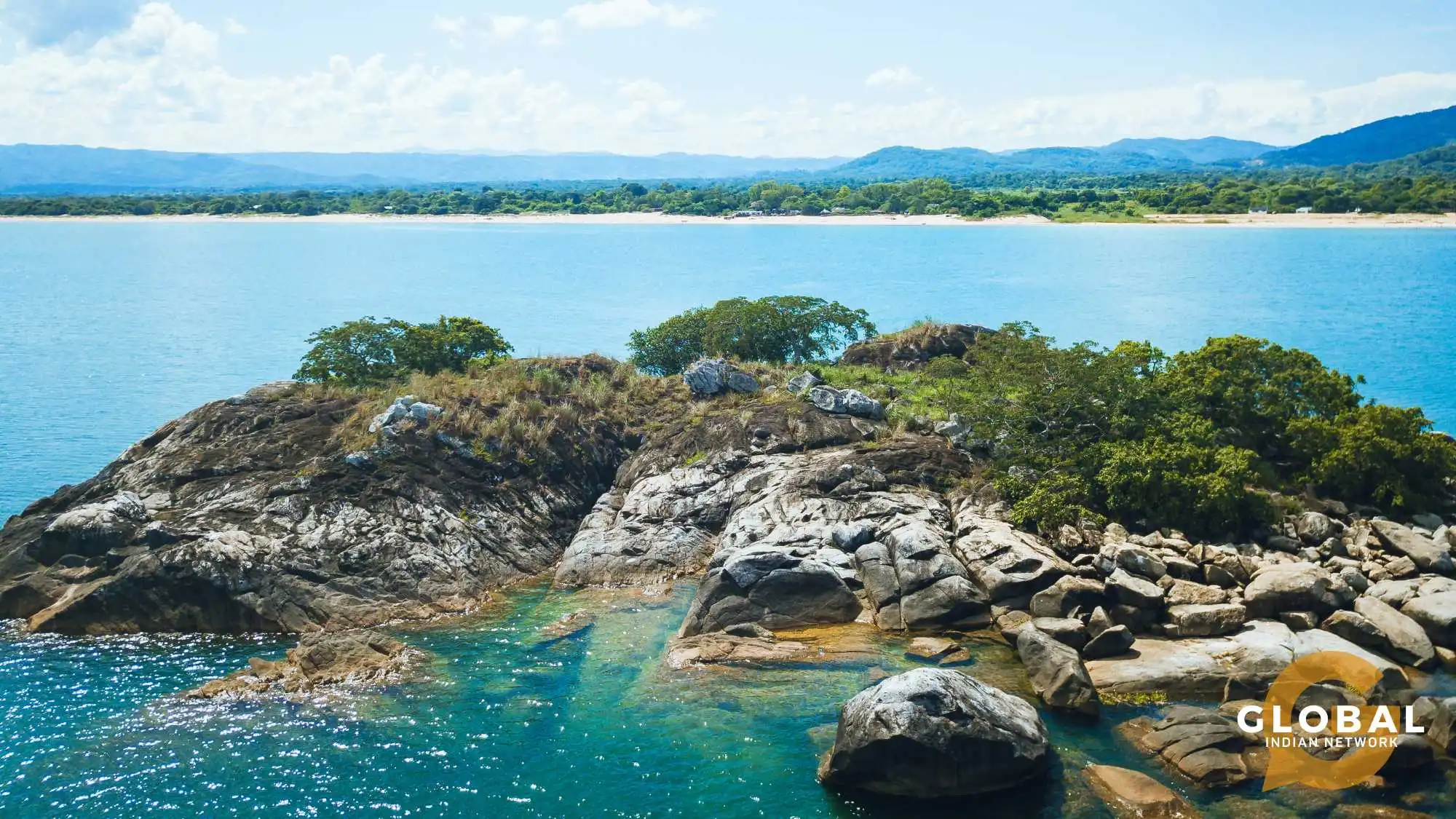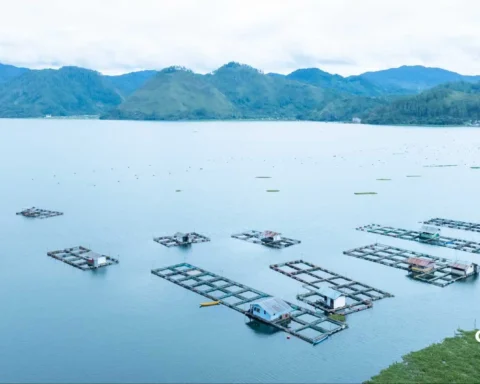Can you believe there is a country that offers everything a tourist craves for? Mountains, lakes, plateaus, national parks, rock art, paintings, and more.
Malawi is a key tourist destination in southeastern Africa, with top attractions including Lake Malawi, Mulanje Mountain, Zomba Plateau, national parks like Nyika, Kasungu, and Liwonde, and two UNESCO Heritage sites. It also features ancient farmer rock art and BaTaw paintings.
Allow us to unravel the splendor of tourism in Malawi.
Table of Contents
Tourism in Malawi at a Glance
Malawi, formerly Nyasaland, is a hidden gem with a blend of natural beauty, wildlife, culture, and adventure. Its crown jewel, Lake Malawi, offers tropical beaches, crystal-clear waters, and rare fish. National parks feature the Big 5, cheetahs, and giraffes. The country’s diverse landscapes include central Africa’s highest mountain, plateaus, forests, and unspoiled game parks.
Global Indian Network (GIN) partners with investors to provide local expertise, network with stakeholders, and establish mutually beneficial partnerships, encouraging decision-makers to explore the potential of foreign direct investment in East Africa. GIN has a Memorandum of Understanding (MoU) with the African Tourism Board - Africa's Next Big Thing: The Future of Travel and Investment Opportunities with Cuthbert Ncube.
Nature Wonders in Malawi
Every country is unique in terms of topography and general landscape. Malawi has a diverse landscape that appeals to those in different age groups.
Lake Malawi, Africa’s largest freshwater lake, is a paradise for water enthusiasts and beach lovers due to its clear waters, sandy beaches, and vibrant marine life. It offers diverse landscapes like Nyika Plateau high plateaus and Zomba Plateau forests, and Mount Mulanje, central Africa’s highest peak. Adventure activities include kayaking, snorkeling, hiking, and scuba diving in Nkhata Bay. Community-based tourism supports local communities.
Image source: Nyika Plateau
Lake Malawi
Natural wonders are galore in Malawi.
Lake Malawi is a serene landscape with turquoise waters, sandy beaches, and lush greenery. Visitors can enjoy swimming, sunbathing, picnics, and gentle waves. Explore the underwater world with snorkel gear, witness diverse fish species, kayak, and sail. Visit Likoma Island, known for its historic cathedral, local culture, fishing villages, and stunning views. Enjoy the refreshing breeze and local culture.
Image source: Cichlid fish
Lake Malawi, also known as “Lake of Stars,” is home to over 1,000 unique cichlid fish species, including endemic species, making it a popular destination for their colorful aquatic life. These species exhibit fascinating adaptations and speciation within their isolated ecosystem, making them popular among aquarium enthusiasts worldwide.
Diverse Landscapes
Let’s explore the diverse landscapes of Malawi, a country that surprises with its natural beauty and geographical variety.
Mount Mulanje: Mount Mulanje, the highest peak in Central Africa, is a granite massif with stunning views of valleys, waterfalls, and endemic plant species, making it a popular hiking destination.
Image source: Mount Mulanje
High Plateaus: Nyika Plateau, a high-altitude grassland with rolling hills, wildflowers, and misty mornings, is a popular destination for hikers and birdwatchers. Zomba Plateau, a south-facing highland with cedar forests, streams, and a cool climate, offers a refreshing escape.
Lush Forests: Mount Mulanje’s Mulanje Forest Reserve is a diverse ecosystem with ancient cedar trees, ferns, and orchids, as well as monkeys, antelopes, and leopards. Viphya Plateau, known for its pine plantations, offers a unique greenery experience with birdlife and refreshing air.
Game Parks and Reserves: Liwonde, a blend of grasslands, floodplains, and riverine forests, is a popular wildlife safari destination with elephants, hippos, and crocodiles. Majete, once depleted, has been restored and now hosts the Big Five, including black rhinos. The reserve, known for its miombo woodlands and rivers, experienced a historic elephant translocation. Mwabvi, in the southern region, offers a unique wilderness experience with rocky hills and river valleys.
Malawi’s landscapes showcase its rich natural heritage, offering unique experiences in peaks, forests, and wildlife spotting.
LISTEN TO THIS PODCAST: Inside Malawi with Attorney General Thabo Chakaka-Nyirenda: BITs, FDIs and Combating Corruption
Wildlife
Let’s embark on a thrilling wildlife adventure in Malawi. The country’s national parks and reserves offer a rich tapestry of biodiversity, from lush landscapes to fascinating wildlife encounters. Here’s a glimpse of what awaits you:
Nyika National Park in northern Kenya offers stunning views of the Great Rift Valley and diverse wildlife, while Vwaza Marsh Game Reserve, located southwest of Nyika, is a vital watershed between Lake Malawi and Zambia’s Luangwa Valley, home to northern Malawi’s largest elephant population and abundant game.
Kasungu National Park in Malawi offers a unique experience of Early Iron Age man history, featuring miombo woodlands, grassy plains, and riverine forests. Nkhotakota, a hidden gem in Africa, features wooded hills, miombo woodlands, and rivers, home to nearly 500 elephants, buffalo, sable, and kudu, and offers comfortable stays at lodges.
Image source: National Park
Lake Malawi, Malawi’s crown jewel, is a diverse ecosystem with marshlands, flood plains, rivers, forests, and hills. Liwonde National Park offers boat safaris along the Shire River, showcasing the Big Five. Majete, once depleted, has transformed into a thriving reserve with diverse game species and predators. Lengwe, a southern region, is renowned for its dense vegetation and unique flora, offering opportunities to explore thickets and encounter elusive species. Mwabvi, a blend of rugged terrain and wilderness, offers wildlife viewing in its natural habitat.
Malawi’s national parks are not just about wildlife; they’re about connecting with nature, conservation, and unforgettable experiences. So pack your binoculars, embrace the wild, and let Malawi’s natural wonders captivate you!
UNESCO World Heritage Sites
There are two world heritage sites in Malawi.
Lake Malawi National Park: This World Heritage site in Malawi, located in the central and southern regions, is home to hundreds of endemic fish species and is significant for the study of evolution, comparable to the finches in the Galapagos Islands.
Image source: Rock Art
Chongoni Rock-Art Area: This site in central Malawi, surrounded by forested granite hills, is home to the largest concentration of rock art in Central Africa. The 127 sites showcase the tradition of farmer rock art, paintings by BaTwa hunter-gatherers, and the practice of rock painting by Chewa agriculturalists. The symbols in rock art, strongly associated with women, still hold cultural relevance among the Chewa.
Cultural Immersion
Malawians are known for their warmth and friendliness, making cultural immersion an organic flow of connections. Embrace the warmth of ubuntu, greet strangers, listen to stories, and let the warmth of the locals envelop you. Ubuntu, often translated as “I am because we are” or “humanity towards others,” emphasizes interconnectedness, community, compassion, and mutual respect.
Malawians are known for their warm, genuine greetings and the Ubuntu philosophy, which emphasizes interconnectedness, compassion, and shared humanity. This concept is evident in everyday interactions, whether in a bustling market, rural village, or lakeside town. Visitors are often invited into their homes for tea or meals, as they take pride in hosting guests and providing a glimpse into their daily lives.
Malawi’s cultural tapestry is woven from various ethnic groups, traditions, and customs. Experience local culture through traditional dance performances, where rhythmic beats, colorful costumes, and spirited movements tell stories of history, love, and celebration. Explore craft markets, where artisans showcase their handmade goods, reflecting Malawi’s artistic heritage, such as intricate woven baskets and wooden carvings. Discover the diverse ethnic groups, including the vibrant Chewa culture and the rich history of trading and cultural exchange within the Yao community.
Image source: Artistic heritage
Whether you’re exploring a village or chatting with a fisherman by the lake, you’ll experience the true spirit of Malawi.
YOU MIGHT BE INTERESTED IN: Inside Malawi: A Fascinating Tale of Independence and Identity with Hitesh Anadkat
Specific Events or Festivals
When visiting Malawi, you’ll have the opportunity to participate in various cultural events and festivals. Here are some notable ones:
The Tumaini Festival in Dzaleka Refugee Camp and the Ufulu Festival in Lilongwe celebrate Malawi’s independence and culture through entertainment, art, and performances, fostering peaceful coexistence between refugees and host communities.
Image source: Tumaini Festival
The Blantyre Arts Festival, established in 2009, is a Malawian annual event that promotes arts and culture through events, cultural exchanges, and performances. It showcases the island’s cultural heritage through traditional dances, music, and local cuisine, while the Zomba City Festival is a vibrant celebration.
Remember to check the specific dates and details closer to your visit, as some festivals may have variations from year to year. Participating in these events allows you to engage with local culture, meet people, and create lasting memories.
Sustainable Tourism in Malawi
Sustainable tourism in Malawi is a vital focus for preserving its natural beauty, supporting local communities, and ensuring long-term benefits. Here are some ways in which sustainable practices are implemented:
Malawi is enhancing national parks and reserves through government and NGOs‘ efforts to protect wildlife and ecosystems, while community-based tourism initiatives promote economic benefits and cultural exchange, focusing on energy efficiency, waste reduction, and conservation.
Image source: Mpale Cultural Village
Raising tourists’ awareness about responsible behavior, respecting local customs, and supporting conservation efforts is crucial, as it supports artisans and preserves traditional skills. Remember, sustainable tourism benefits everyone—the environment, local communities, and travelers alike.
ALSO READ: Malawi’s FDI Landscape: Opportunities, Challenges, and The Road Ahead in 2024
Awards for Malawi Tourism
The Malawi Tourism Industry Awards of Excellence acknowledge exceptional achievements in the country’s tourism and hospitality sector, recognizing individuals, organizations, and destinations that significantly contribute to the industry.
The list includes various awards such as Leading Hotel, Leading Lodge, Leading Lake Resort, Leading National Park/Game Reserve Lodge, Leading Meetings and Conference Centre, Leading Restaurant, Leading Chef Award, Leading Airline Award, Leading Car Hire Award, Leading Tour Operator Award, Upcoming Tour Operator Award, Leading Travel Agent Award, and Leading Tour Guide Award.
Some of the award recipients are Amaryllis Hotels, Leslie Lodge, Club Makokola Retreat, Tongole Wilderness Lodge, Sigelege Hotel, Mama Mia Restaurant, Lilongwe, Chef Mwagombe, Ethiopian Airlines, Apex Car Hire, Adventures with Colby, Sesame Safaris, Satguru Travel & Tours, Lilongwe, and Vasco Munthali, Land and Lake Safaris among many others.
Malawi’s tourism industry is recognized globally with the World Travel Awards, honoring its nominees, including notable figures like tour guides and chefs. These awards highlight Malawi’s commitment to promoting competitiveness, sustainability, and industry excellence.
Recent Award Winners in the Malawi Tourism
Sunbird Waterfront in Salima was awarded The Leading Lake Resort Award for its exceptional lakeside resort experience.
Kutchire Lodge in Machinga was recognized for its significant contributions to wildlife conservation and guest experiences in a national park or game reserve setting. Bingu International Convention Centre (BICC) in Lilongwe was awarded as the leading meeting and conference centre, renowned for its excellence in hosting gatherings and promoting business tourism.
Image source: Kutchire Lodge
These award winners demonstrate the commitment of Malawi’s tourism industry to excellence and sustainable practices.
Global Indian Network (GIN) partners with investors to provide local expertise, network with stakeholders, and establish mutually beneficial partnerships, encouraging decision-makers to explore the potential of foreign direct investment in East Africa. GIN has a Memorandum of Understanding (MoU) with the African Tourism Board - Africa's Next Big Thing: The Future of Travel and Investment Opportunities with Cuthbert Ncube.
Conclusion
Let’s wrap up our journey through the enchanting land of Malawi.
Malawi, with its warm-hearted people, diverse landscapes, and captivating wildlife, beckons travelers to explore its hidden gems. The uniqueness does not portray Malawi just as a destination; it’s an experience that leaves an indelible mark on your heart. So pack your curiosity, embrace the warmth, and let Malawi’s magic unfold.
Enjoy the place and confirm for yourself…the nature, the adventure, and the culture.
As the sun sets over Lake Malawi, you’ll understand why it truly is the “Warm Heart of Africa.”










[…] ALSO READ: Tourism in Malawi: From Plateaus to Wildlife Safaris […]
[…] ALSO READ: Tourism in Malawi: From Plateaus to Wildlife Safaris […]
[…] aspiring entrepreneurs should be aware of the challenges of doing business in Malawi despite all the positive […]
[…] with diverse landscapes and cultural heritage are embracing tourism as a key sector, focusing on ecotourism, adventure tourism, and cultural […]
[…] environmental conservation and ecotourism initiatives, preserving natural habitats, generating tourism revenue, and ensuring sustainable livelihoods for local […]